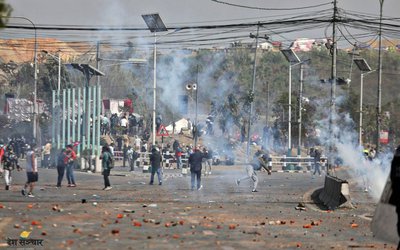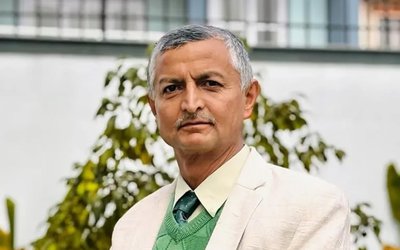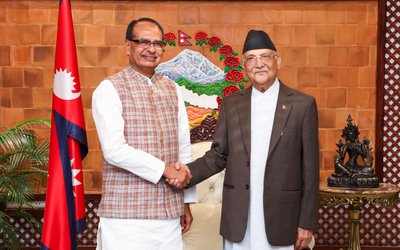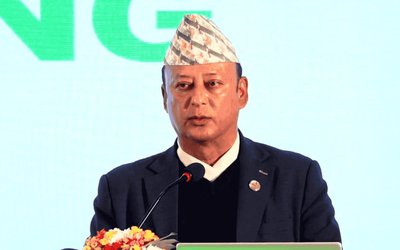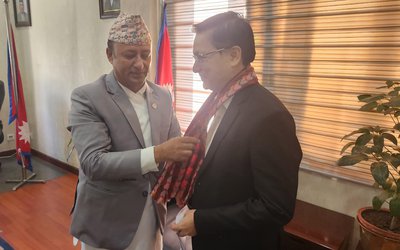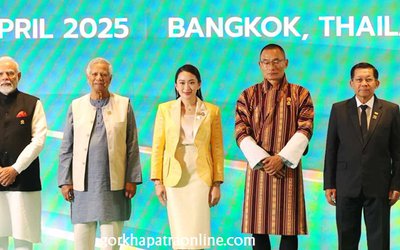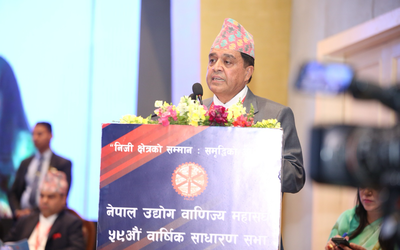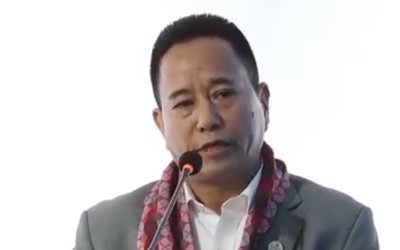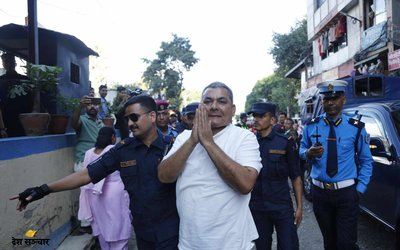
Earthquake victims in Sindhupalchowk district have complained that they were unable to use the relief materials provided by various agencies, including government and relief agencies.
Tons of rice donated by the foreign governments were lying unused for months in the government storage and later on the rice was reportedly destroyed in Jhapa. Even UN World Food Program destroyed tons of rotten rice following complaints it received from the community in Gorkha district.
International agencies, government agencies, INGOs/NGOs and civil society organizations joined the earthquake relief and recovery efforts with tons of cloths, food stuffs and other relief materials. However, the relief and recovery process has seen some flaws.
Although people received the relief materials immediately after the earthquake, several reports came out in public about the unused, overused and unequal use of such relief materials.
As most of the relief and recovery programs were designed based on the wishes of the donor community and government agencies in the center rather than the needs of the community, it is natural such a scenario developed now.
Many duplications and shortcomings were in the immediate relief campaign. There were duplications in launching sustainable livelihood programs and construction of temporary shelters.
In some areas, there was even discrimination among the dalits and non-dalits, with the dalit community receiving less relief than their non-dalit counterparts. Dalit activists Durga Sob demanded in a program recently that the distribution should be fair and equal among the people of dalits and non-dalits and people should know what are they are given.
Likewise, distribution of food stuffs is also unequal as the people living far away from the road areas got less and those victims who live near the roads received much more. Even the government cannot supply the stored food to the victims who were in desperate needs.
As most of materials were distributed on the decision taken at the center and without the involvement of the affected community, duplications of work and unequal distributions and unused things have been common.
Many agencies are working in the new mammoth phase of reconstruction and rehabilitation. However, only a few are talking about development through the rights based approach.
In partnership with its local NGOs, IM Swedish Development Partner is monitoring the use of rights-based approach and accountability in the earthquake devastated areas.
With the support from IM, a study conducted by Humanitarian Accountability Monitoring Initiative (HAMI) in various earthquake affected areas showed the shortcomings in the earthquake relief and recovery.
“Our study has revealed that the question of accountability in the distribution of relief materials was completely ignored by many organizations,” said Min Bahadur Shahi, coordinator of HAMI.
Along with this, IM Swedish Development Partner has been launching the livelihood programs in the earthquake affected village of remote parts of Gorkha district.
“We believe that the development program should be developed in human rights perspectives, respecting the dignity of people. The local community should be involved in the decision making,” said Keshab Dahal, program officer of IM Swedish Development Partner. "Along with the implementation of the program, local community should be involved in monitoring, evaluation and analysis.”
With the completion of the first phase of relief and recovery campaigns in the earthquake affected areas, the government has already launched a mammoth reconstruction campaign.
As an organization promoting rights based approach to development, the Swedish organization is supporting the programs which aim to enhance ability of women, men, girls and boys, living in poverty and exclusion, and those form the marginalized communities to exercise their economic, social and cultural rights to lead a life in dignity.
IM Swedish Development Partner is supporting the program in Muchowk of Gorkha district under Earthquake Livelihood Recovery Project. “Coordinating with District Development Committee Gorkha, we have been launching the renovation of an irrigation canal, drinking water tap and providing quality reading materials for schools through economic empowerment and livelihood programs."
With the population of 1100, Muchowk village, which was completely destroyed by the earthquake, is now recovering. “We are supporting farmers with agriculture input support, market linkage, training and goat roaring,” said Dahal.
As an organization which believes in the rights based development rather than needs based, it pursues accountability. According to its new strategic plan, for 2015-2017, it envisages a shift to sustainable development of education and economic empowerment through various low-cost development models, empowerment, capacity building and the strengthening of civil societies, with the rights based and strategic approach. In addition, the promotion of accountability within itself, its partners, civil society organizations, Nepali authorities and private sector institutions are going to be the key markers of success of its programs.
- BIMSTEC SUMMIT: Nepal’s Stand
- Apr 11, 2025
- IME GROUP: Expands Into Paper Industry
- Mar 24, 2025
- CPN UML: Instigated By India
- Mar 23, 2025
- ADB’S CHIEF ECONOMIST: Nepal Reduces Poverty
- Mar 11, 2025
- FM DR. DEUBA: A Successful Visit
- Mar 11, 2025
